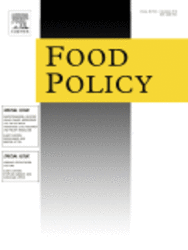Journal Article
The Welfare Effects of Health-based Food Tax Policy
This paper examines the effects of health-oriented food tax reforms on the distribution of tax payments, food demand and health outcomes. We offer an illustration of how one can take into account the uncertainty related to both demand estimation and health estimates and to produce confidence intervals for the overall health effects instead of only point estimates. Taxation of sugar could lead to a statistically significant reduction in both the incidence of type 2 diabetes and coronary heart disease. The health effects appear to be most pronounced for low-income individuals, and the reforms may therefore reduce health inequality. This effect undermines the traditional regressivity argument against the heavy taxation of unhealthy food.
 Join the network
Join the network